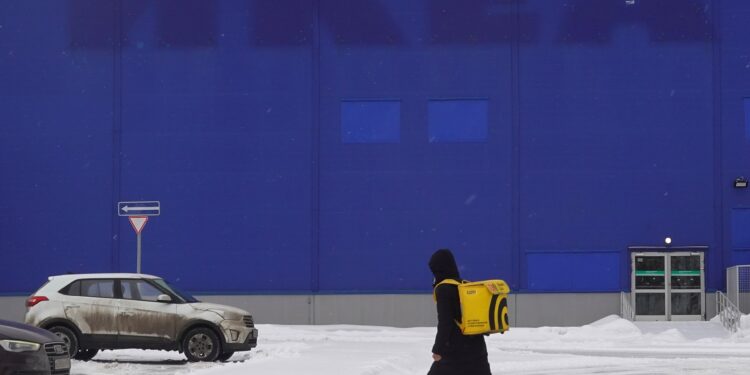Russia managed to significantly reduce its budget deficit in the first eight months of 2024, thanks to economic growth that exceeded expectations and rising oil and gas revenues, which helped finance the Kremlin’s increased spending due to the war in Ukraine.
The deficit narrowed to 331 billion rubles ($3.7 billion), equivalent to 0.2 percent of the country’s gross domestic product, according to Finance Ministry data published on Friday.
In August alone, Russia posted a budget surplus of 767 billion rubles ($8.5 billion), driven by a nearly 1 trillion-ruble increase in revenues from the non-oil and gas sectors compared to July, according to Bloomberg.
This is a major shift as inflows from these sectors have increased, providing the government with significant financial relief.
All sectors support
Total budget spending in the eight months to August amounted to 23.4 trillion rubles ($257.4 billion), an increase of 22% compared to the same period last year.
This increase in spending is due to the demands of the ongoing war in Ukraine, according to Bloomberg, and to support local industries amid international sanctions.
Despite the increased spending, Russia’s revenues rose sharply, up 36% compared to the same period in 2023.
Finance Minister Anton Siluanov, speaking on state television, explained that the increase in revenues was due to stronger-than-expected economic growth and higher oil and gas revenues. In August alone, oil and gas export revenues rose by 21% year-on-year, while revenues from non-oil sectors rose by 37% compared to the same period in 2023.
GDP is expected to grow by 3.9% this year, a slight improvement from the 3.6% recorded in 2023, according to the Finance Ministry’s forecast.
This economic optimism gives the government more room to increase spending, the agency said, as Russia is targeting a budget deficit of 2.1 trillion rubles (1.1% of GDP) this year.
Russia has been running a budget deficit for the past two years since the outbreak of war between Russia and Ukraine in February 2022, prompting massive increases in defense spending and measures to support domestic businesses amid sanctions imposed by the United States and its allies.



